
by Mark Yon
Scenes from England
Hello again!
And yes, I’m relieved that we have another monthly issue of New Worlds. As you may know publication has been a little erratic of late, but I’m pleased to see that we may be settling back into a monthly routine.
That’s not to say that the magazine hasn't changed in form. Not only have we gone big and glossy and increased the price per issue to 5/- to allow this, but the content has also changed. The magazine, as perhaps befitting its Arts Council sponsorship, has begun to incorporate more art, more non-fiction articles and less traditional science fiction, which has evoked protests that it is betraying its origins as “a science fiction magazine”. Now we get softer fiction, often allegorical, often nonlinear, with never a spaceship to be seen.
Similarly, another change has caused unease. Have you noticed that things have gotten a little more raunchy of late? Well, perhaps not raunchy – that would be very un-British! But let us say that there is more explicit content.
The last issue was a prime example of this. But what does that mean for this month’s issue?
 Cover by Vivienne Young
Cover by Vivienne Young
Lead in by The Publishers
For anyone wondering where once-Associate Editor Langdon Jones has been lately, the Lead In explains all. He is no longer working for New Worlds, but instead concentrating on his own writing. The Lead In is totally devoted to him, which is useful for readers to understand his story. 4 out of 5.
The Eye of the Lens by Langdon Jones
This tour de force takes up most of the issue. I’m not a huge fan of having to have an author explain his story, as Langdon Jones has in the Lead In. However, on this occasion it does help to make sense of what otherwise would be a group of random and meaningless elements.
Lyrical prose, poetry, visual imagery – Langdon Jones pulls out all the stops here to create a story made up of parts in different styles that’s difficult to describe, even with his handy notes given. The Hall of the Clock seems almost Gormenghast-ian in its description of allegorical machinery, whilst The Eye of the Lens seems reminiscent of Godard. We have narrative, film scripts and even prose diagrams that remind me of Alfred Bester’s The Stars My Destination.
 Langdon Jones's plot by diagram
Langdon Jones's plot by diagram
It is perhaps best to appreciate each section rather than try and make any sense of the overall plot – there doesn’t seem to be one. Instead, there’s lots of writing with dramatic and dynamic imagery, often religious as well as sexual, which may not be to everyone’s taste. (We really are trying to offend here, aren’t we?) Nevertheless, The Eye of the Lens is perhaps Langdon’s best work to date, if a tad befuddling – again, that may be the point. 4 out of 5.
Lib by Carol Emshwiller
A lyrical story that seems to involve the sexual encounters of Lib, yet as is typical of these stream-of-consciousness-type stories, is deliberately enigmatic. I wasn’t clear whether this was a casual fling or a description of Lib’s profession, although I suspect the latter. This ambiguity may be the point in these days of sexual liberation. 3 out of 5.
The Interrogation by David Lunde

Ah, poetry, about how torture leads to an inward-looking perspective. Short. Doesn’t outstay its welcome. But…dare I say it…surprisingly predictable. 3 out of 5.
Bug Jack Barron (Part 3 of 6) by Norman Spinrad

Quick recap: media celebrity Jack Barron is still embroiled in political machinations determined to force through the Senate the Freezer Utility Bill, a law which will allow Benedict Howards and his corporation The Foundation for Human Mortality a monopoly on cryogenics in the future. Jack, however is still pining for his ex-wife Sara Westerfeld, who unbeknownst to Jack has been covertly contracted by Howards to get to him.
The beginning of this part involves sex between Barron and his secretary Carrie. The next day Barron is contacted by Gregory Morris, Governor of California, who makes Jack an offer to be the next President of the United States. All Jack has to do is sign up to the Republican Party and be their figurehead. Jack laughs the offer away, and the call ends acrimoniously. Explaining this to his Negro friend Lukas Greene, Jack is made another offer by Greene – this time on behalf of the Social Justice Coalition. Whilst thinking this over, Jack meets Sara again and their love is rekindled.
If last month’s part was “style over substance”, this part feels more so. Much of it seems to be just sex, and even with the more adult material of late I feel that we’re pushing pretty close to boundaries here. Like the Brian Aldiss "Charteris" story a couple of issues ago, the author seems to want to use linguistic styles to do little more than see what sexual activity he can get away with. It all feels a little grubby, frankly. That’s not to say the story doesn't move on, but I can’t help feeling that the plot’s really more interested in other things at this point. 3 out of 5.
Article: Fun Palace, Not A Freak Out by Charles Platt

More cut-up-art shenanigans from Charles Platt. This month he seems to be ranting about overstimulation and sex. Seems to fit in with the general theme of the issue. 3 out of 5.
The Head Rape by D. M. Thomas
A poetical rumination on a rape whilst telepathically connected to the rapist. Not for the faint-hearted; it is purposefully shocking, and perhaps distasteful, meant to deliberately provoke. Memorable, but not in a pleasant way. 2 out of 5.
Article: Sex, Sitars and Superimposition by Stacy Waddy

Great title, so-so article. Stacy Waddy reports on the International Knokke Experimental Film Festival. As the name of the Festival suggests, it sounds like it was weird but fun – but I think that perhaps you had to be there to fully appreciate it. Stacy makes a point, though, that the organisers missed a trick by banning audience participation, a chance to bridge the gap between film-action and real-life-action. 3 out of 5.
Article: Book Reviews – Getting The Stuff – A Review of Norman Mailer’s Why Are We in Vietnam? by Douglas Hill and James Sallis
Douglas Hill reviews in detail Norman Mailer’s book Why Are We in Vietnam?. Generally the book is well received, although Douglas points out that because the narrator of this "exciting" book is seen as “foulmouthed” it is unlikely that Why Are We in Vietnam? will be published in Britain. However, if ever justification for the political goings-on in Bug Jack Barron were needed, this may be it.
Continuing the political theme, in the second half new-Associate Editor James Sallis reviews Jack Newfield’s A Prophetic Minority: The American New Left. I must admit that the reading of US events in “a British magazine”, or even reviewing a book that the British general public may not ever see, seems a little odd, yet understandable when you realise that the magazine is now being sold in the US. Such reviews and articles reflect Moorcock’s determination to reach an American audience. (Anyone else notice the 75c price on the cover in recent months as well?)
You may remember Sallis from his odd short story Kazoo in issue 174 back in August 1967. I wasn’t too impressed, myself, but he has an acceptable go as a reviewer here, discussing Hump: Or Bone by Bone Alive by David Benedictus, another book that I have never heard of. This review didn’t really persuade me to read it, either.
Summing up New Worlds
Another issue that seems to want to push boundaries whilst fitting the description of the new New Worlds I gave at the beginning of this review. The emphasis on sex and religion is noticeable – presumably it gains casual readers – although really this is more of the same from the ‘Brave New World’ that Moorcock, Platt and their associates are determined to create. Most of this issue is actually quite hard to describe, being nonlinear and at times nonsensical.
There’s a lot of introspective navel-gazing here, in both the articles and in the fiction. I suspect that your enjoyment of this issue will mainly be determined by how much you like the Langdon Jones and Jack Barron stories, as they dominate. Nice to see Carol Emshwiller's byline–women don't appear often in British mags, and it looks like Moorcock is trying to widen the field a little.

And that’s it, until next time.

![[February 24, 1968] Sex, Mind-Rape, Sitars and Fun Palaces <i>New Worlds</i>, March 1968](https://galacticjourney.org/wp-content/uploads/2023/02/New-Worlds-mar-68-672x372.jpg)

![[February 22, 1968] Reich or Wrong? (<i>Star Trek</i>: "Patterns of Force")](https://galacticjourney.org/wp-content/uploads/2023/02/680222title-672x372.jpg)








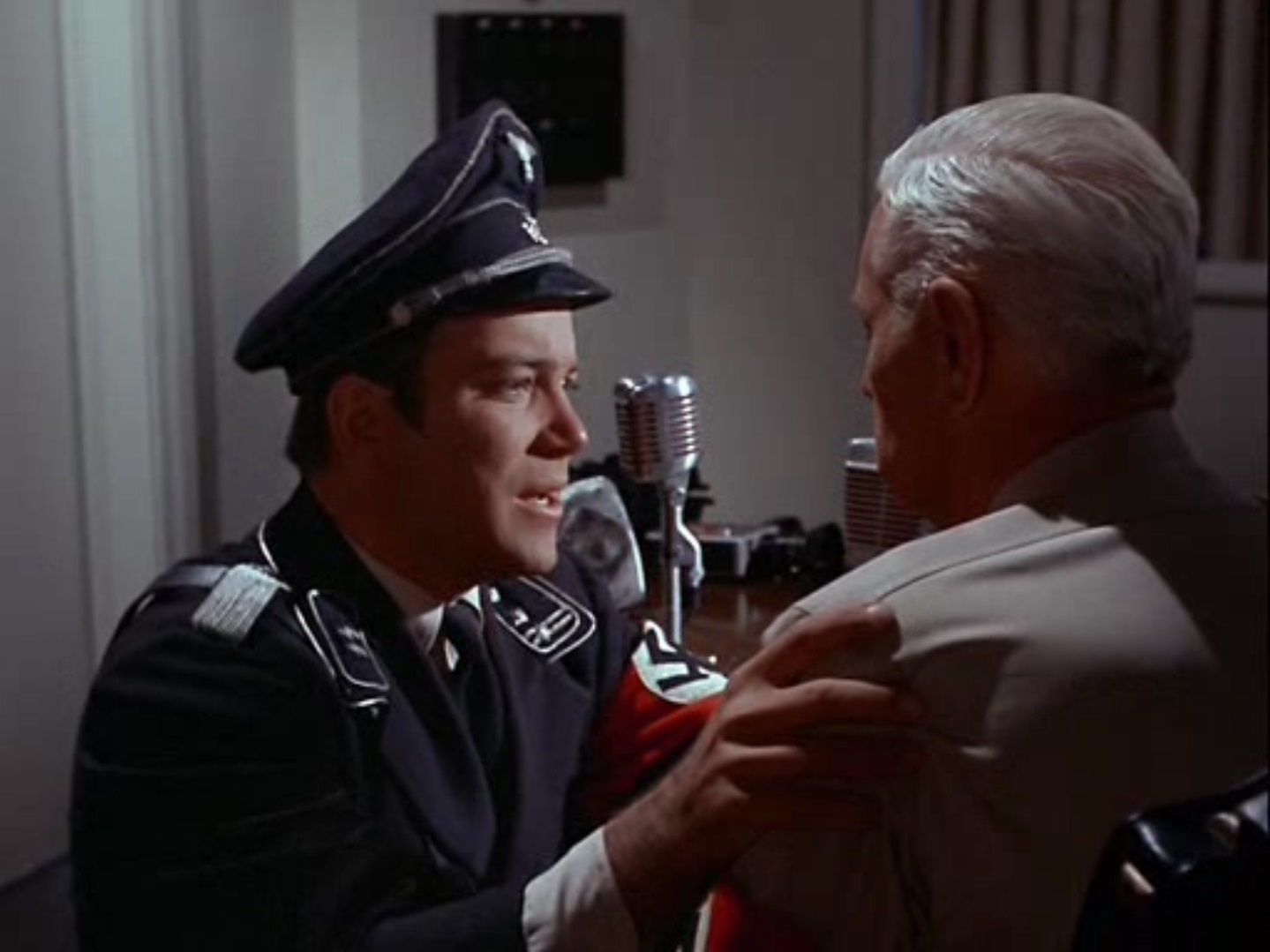







![[February 20, 1968] 1-2-3 What are we fighting for? (March 1968 <i>Fantasy and Science Fiction</i>)](https://galacticjourney.org/wp-content/uploads/2023/02/680220cover-671x372.jpg)
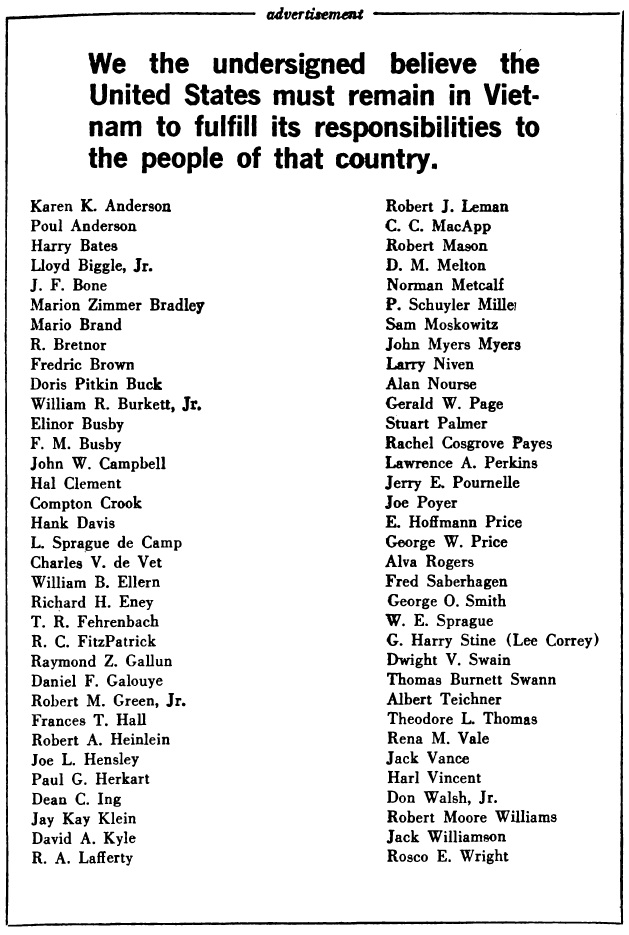
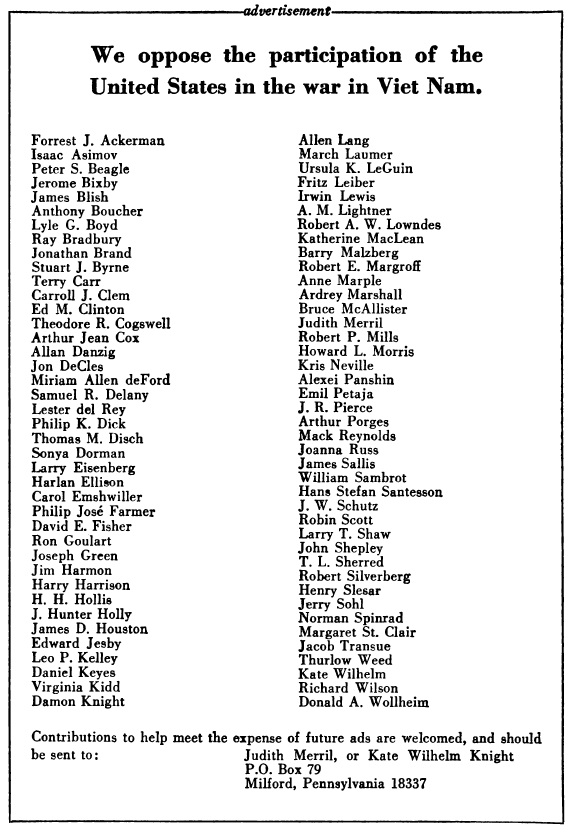
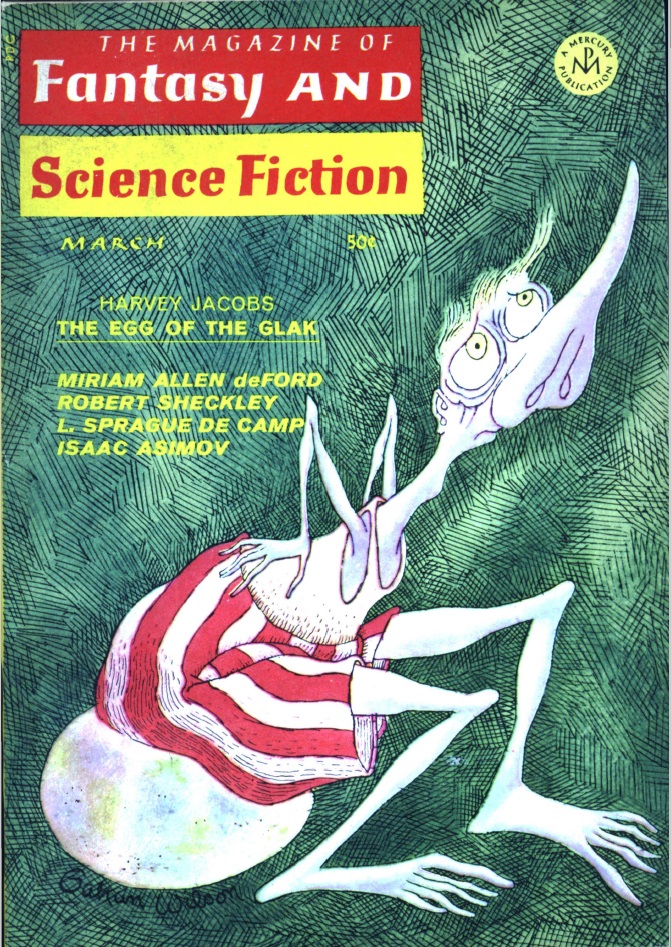
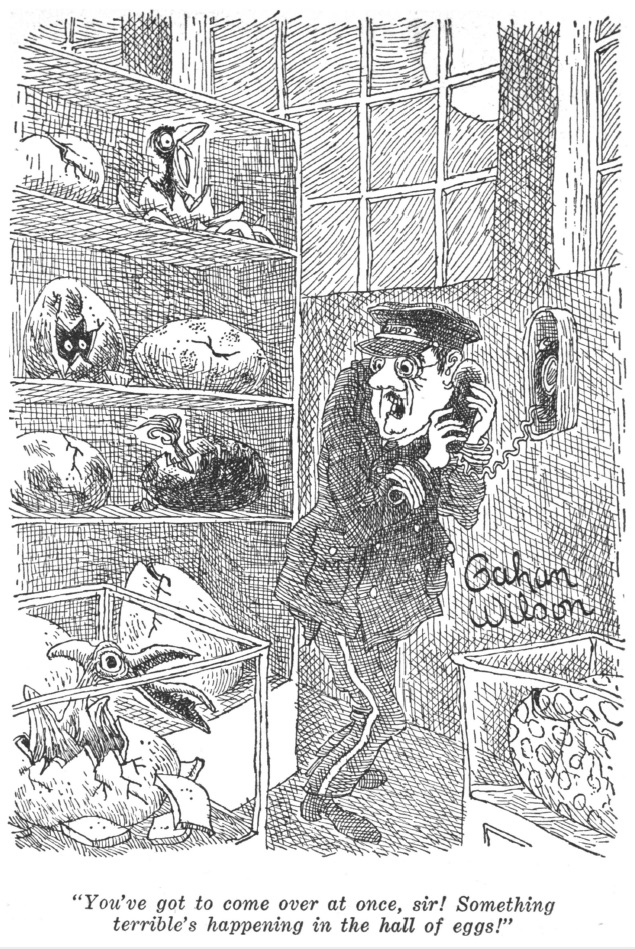
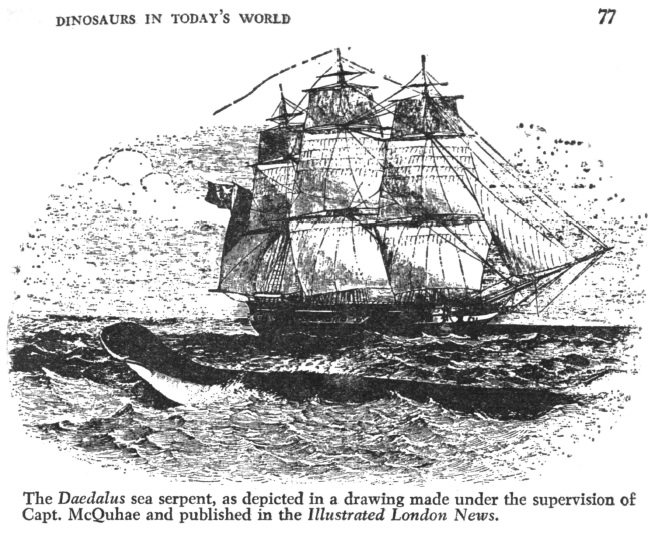
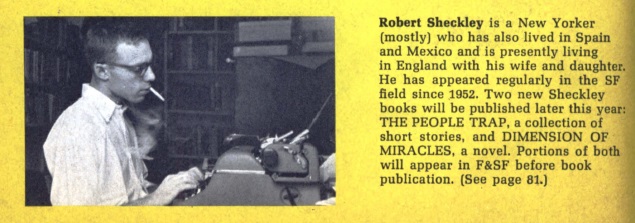
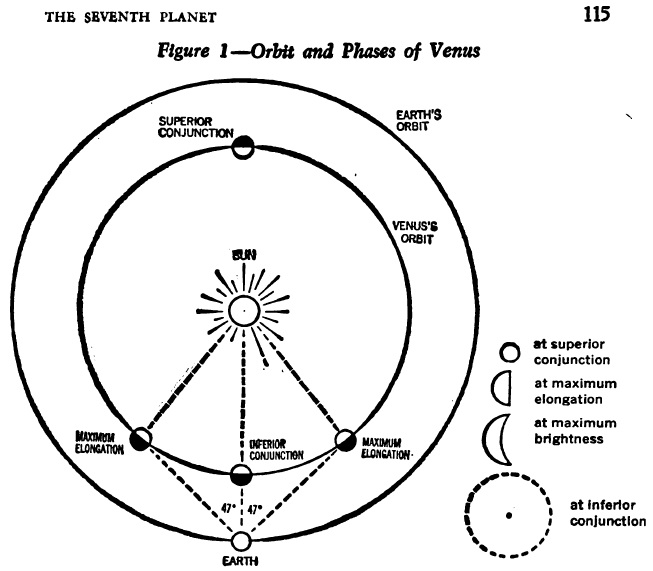
![[February 18, 1968] Yet(i) Again, London Is Under Attack (<i>Doctor Who</i>: The Web Of Fear [Part One])](https://galacticjourney.org/wp-content/uploads/2023/02/680218underground-672x372.jpg)


![[February 16, 1968] In their words (<i>Star Trek</i>: "Return to Tomorrow")](https://galacticjourney.org/wp-content/uploads/2023/02/680216title-672x372.jpg)










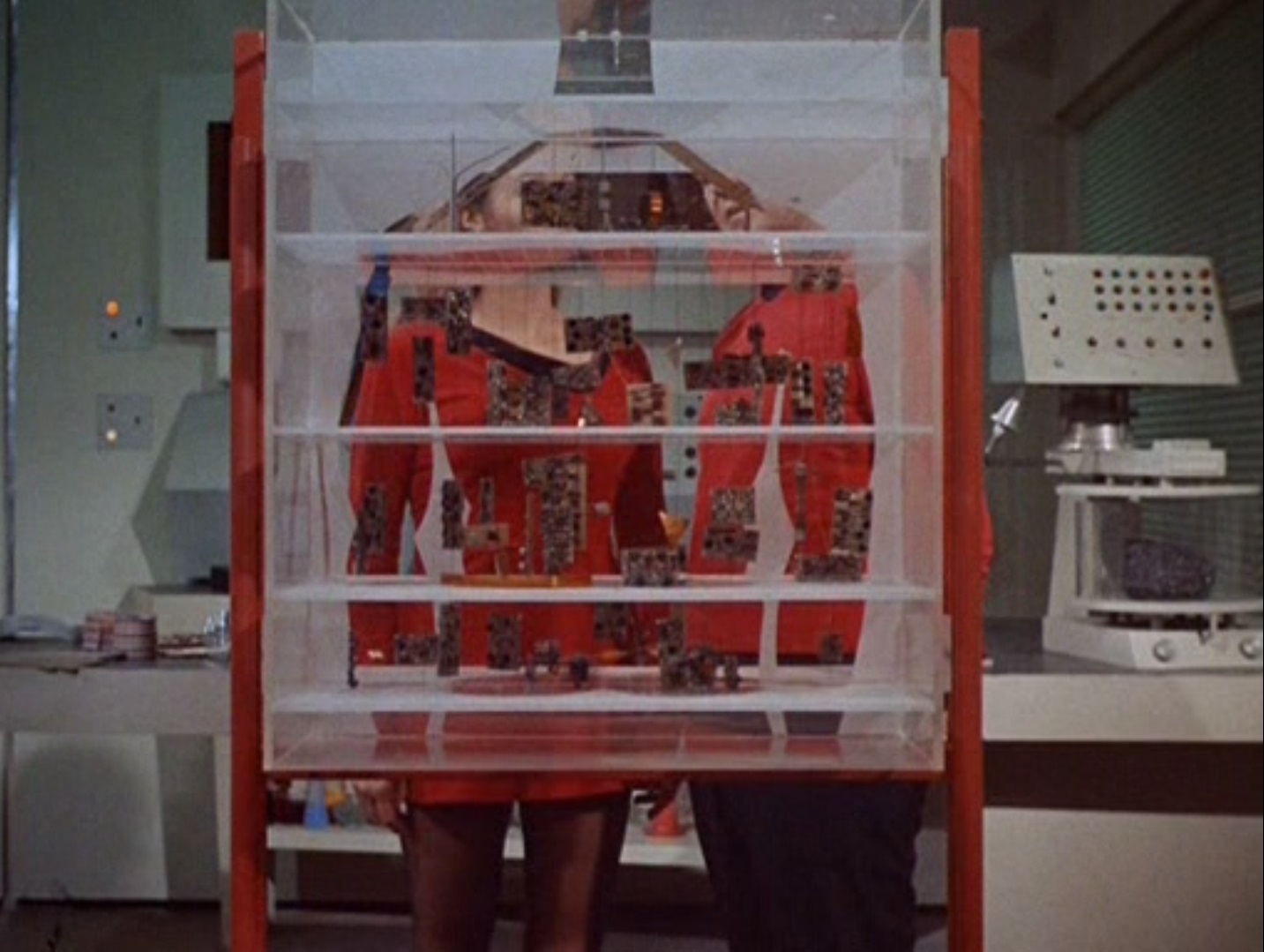

![[February 14, 1968] Triple John (February 1968 Galactoscope)](https://galacticjourney.org/wp-content/uploads/2023/02/680214titles-672x372.jpg)

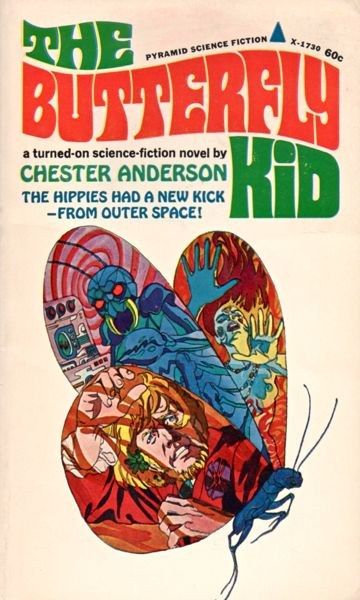


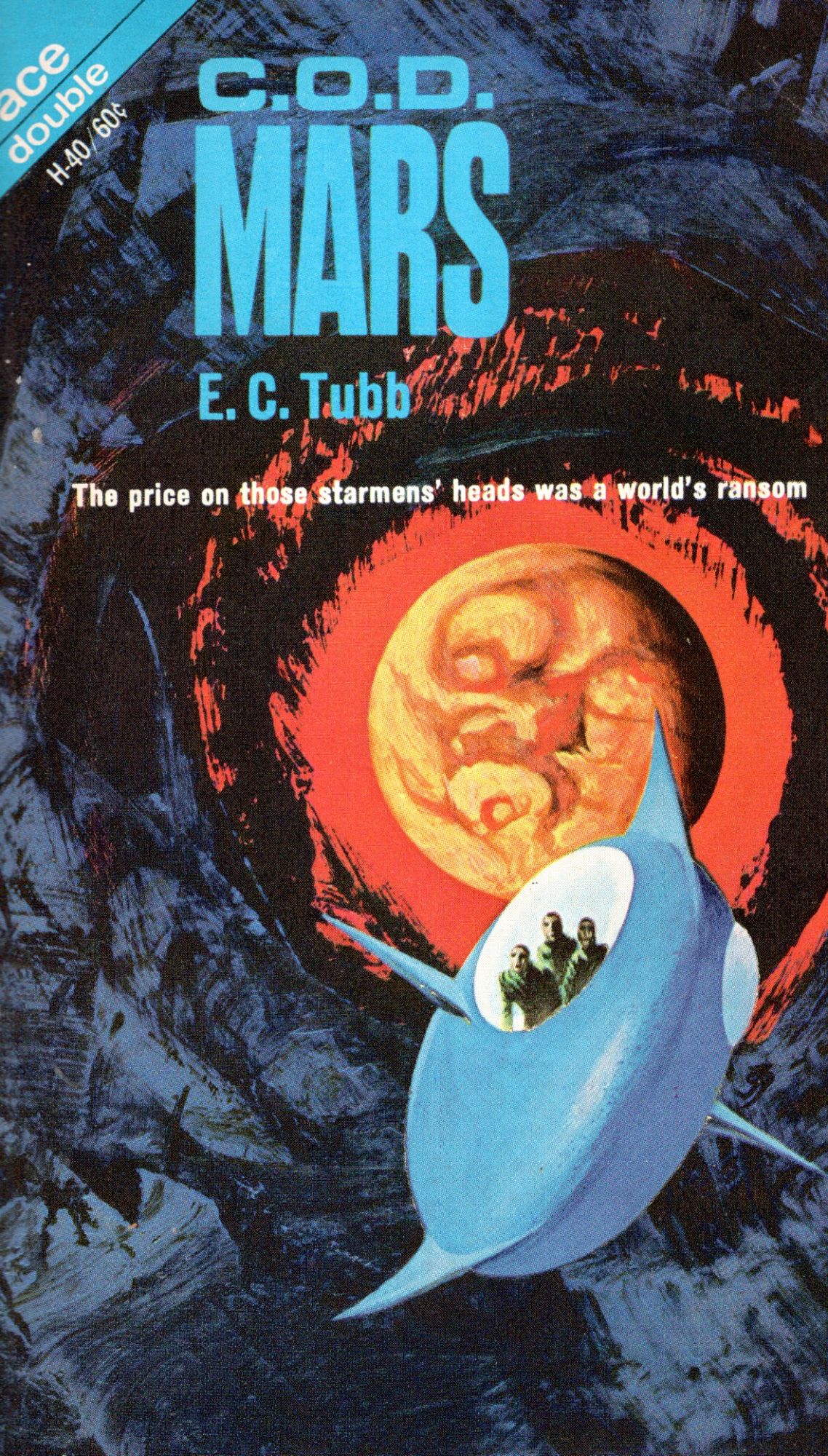
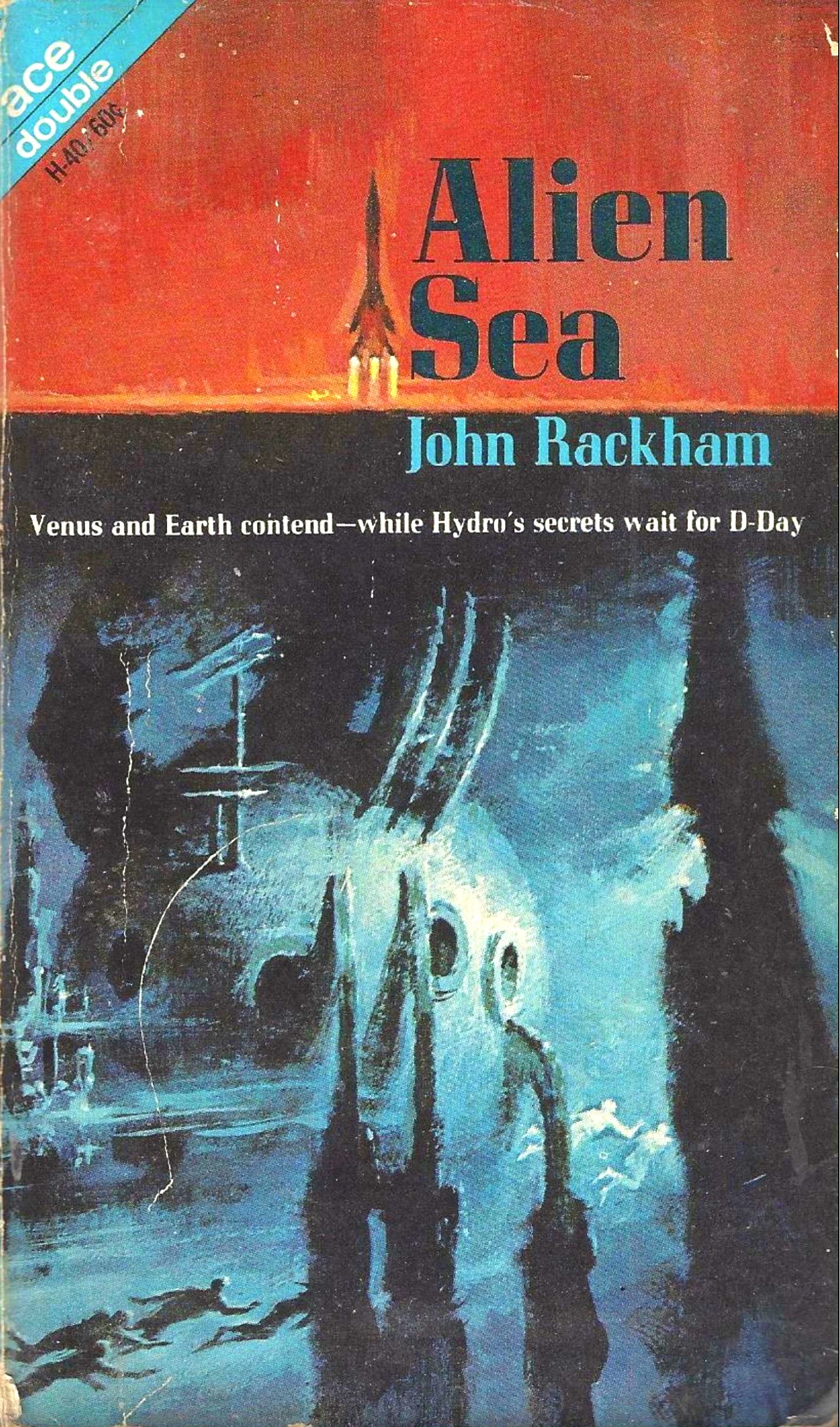

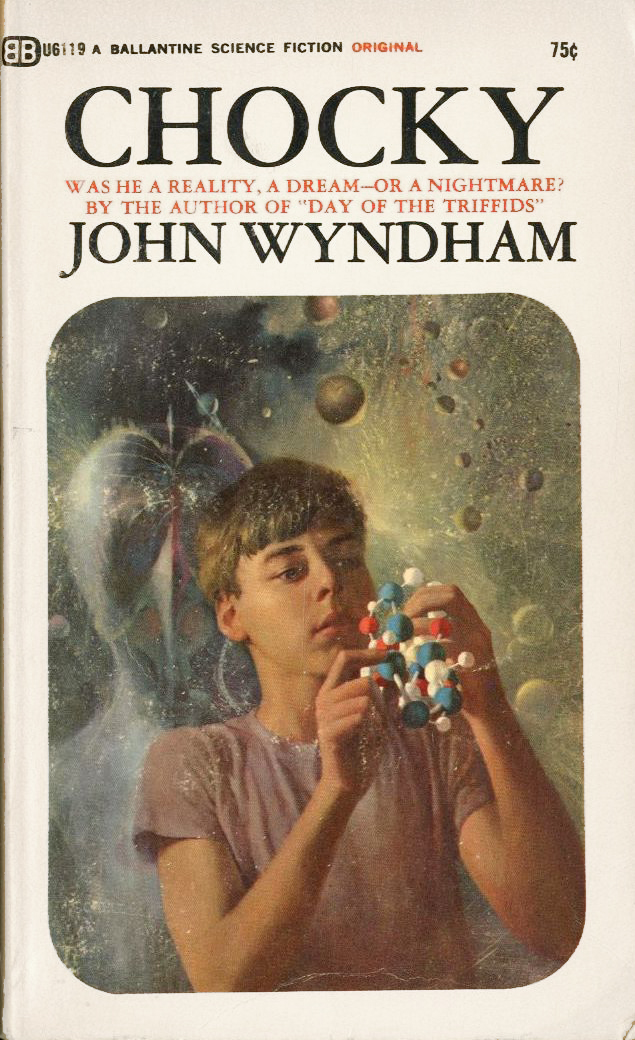
![[February 10, 1968] It's a Man's World (March 1968 <i>Fantastic</i>)](https://galacticjourney.org/wp-content/uploads/2023/02/cover-2-672x372.jpg)













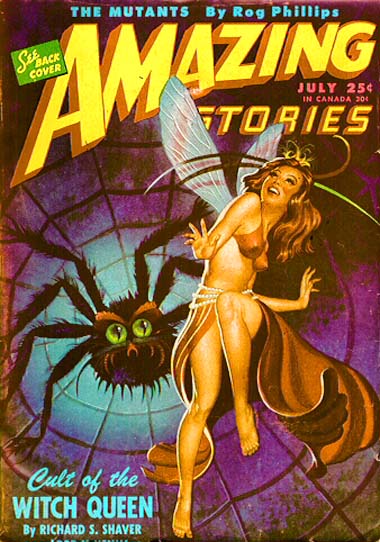











![[February 8, 1968] The Trek Offensive (<i>Star Trek</i>: "A Private Little War")](https://galacticjourney.org/wp-content/uploads/2023/02/680208title-672x372.jpg)











![[February 6, 1968] The Most Dangerous Dame (<i>Confessions of a Psycho Cat</i>) and From the Land of Hype (Ellison's <i>From the Land of fear</i>)](https://galacticjourney.org/wp-content/uploads/2023/02/680206covers-672x372.jpg)












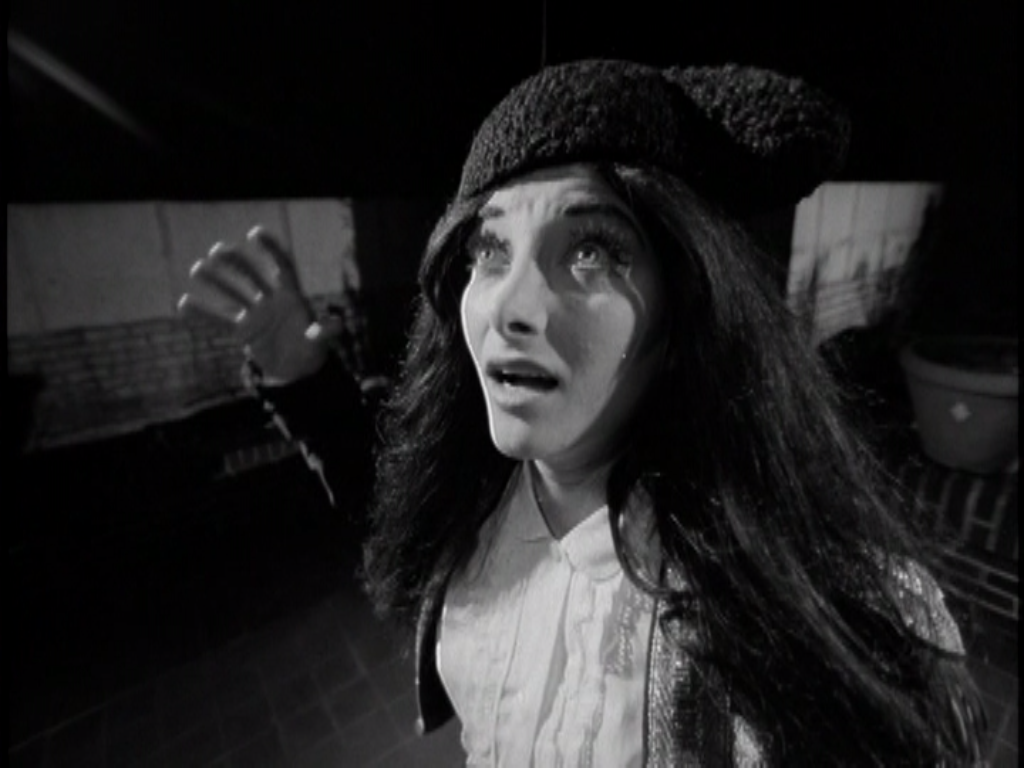



![[February 4, 1968] More of the Same (March 1968 <i>IF</i>)](https://galacticjourney.org/wp-content/uploads/2023/01/IF-1968-03-Cover-434x372.jpg)

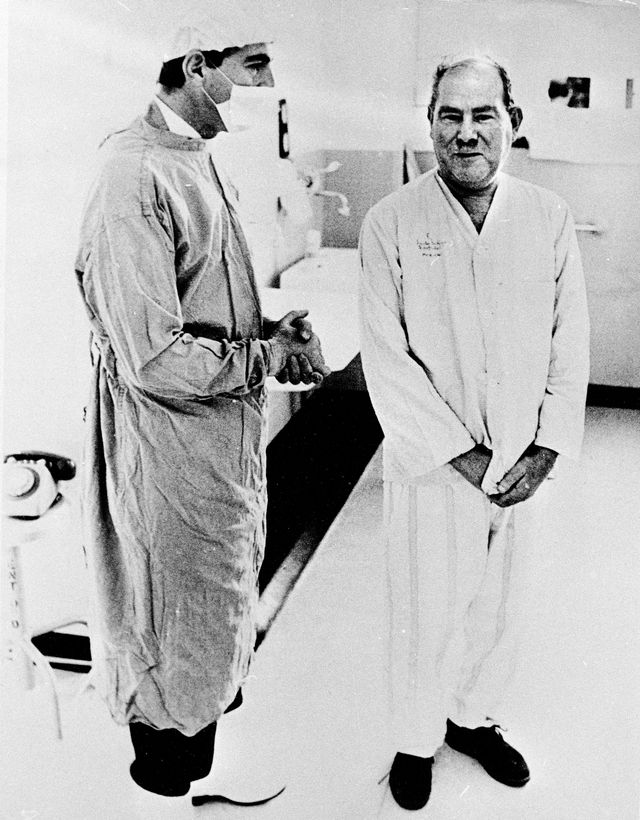 Dr. Barnard (I.) and Philip Blaiberg (r.), probably before the surgery.
Dr. Barnard (I.) and Philip Blaiberg (r.), probably before the surgery. Dr. Shumway at a press conference last fall (l.), Mike Kasperak and his wife, Ferne (r.)
Dr. Shumway at a press conference last fall (l.), Mike Kasperak and his wife, Ferne (r.) This unpleasing collage is for Harlan’s new story. Art by Wenzel
This unpleasing collage is for Harlan’s new story. Art by Wenzel